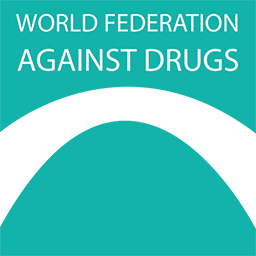Yesterday, the CND Thematic Intersessionals kicked off and will be held until October 2nd, 2025. The scheduled thematic discussions focus on various themes, including prevention, harm reduction, transmissible diseases, and the impact of new psychoactive substances. The first thematic discussion, titled “Prevention as a core element of the public health response to drug use”, was dedicated fully to prevention, including an expert panel, contributions by Member States, highlighting their commitment to prevention, and interventions by civil society.
WFAD was honoured to contribute to this session on behalf of the Child Protection Working Group, highlighting the importance of prevention and the need for continuous investments – especially in times in which we see a reduction of funding and an increase in conflict and mental health challenges. Drug demand reduction is an essential component and should not be overshadowed by supply reduction.
Full Statement
Thank you, Chair, distinguished delegates.
I speak today under the umbrella of the VNGOC, representing the World Federation Against Drugs and our 480 organisational members, and the Child Protection Working Group. We welcome today’s focus on prevention as a core element of the public health response to drug use, appreciate the statements and commitments shared during the session, and join in stressing the urgency of continuous and consistent investment.
Recent initiatives, such as the Oviedo Declaration and the resolution on prevention (E/CN.7/2025/L.2/Rev.1) led by Chile, show the value of joint action by governments and civil society. Yet these commitments must now be followed by implementation.
Promoting and embedding a culture of a prevention mindset at all levels can help us address the root causes of drug use before it begins, strengthening resilience. Yet, prevention remains one of the most underfunded pillars of the global response to drug use, despite being a proven, cost-effective approach. The World Drug Report shows that in 2023, 64 million people lived with a drug use disorder, while treatment reached only one in seven men and one in eighteen women. With international aid diverted and conflicts on the rise, scaling up investment in evidence-based prevention as a fundamental pillar of the continuum of care is more urgent than ever.
Evidence and practice tell us that prevention must start early and be implemented long-term: it must integrate child protection, youth participation, and family support, while also addressing mental health and the particular vulnerabilities of conflict-affected communities. To succeed, we must build comprehensive systems of care, engage a wide range of stakeholders, and strengthen the capacity of civil society through professional training and support. These efforts must complement, not be overshadowed by, supply reduction measures.
Finally, collaboration with civil society and youth is not optional; it is essential. Only by working together can we ensure that rights are fulfilled, in particular Article 33 in the Convention on the Rights of the Child, children and young people are protected, and that safe and healthy environments are created for the next generation.
Thank you.



Leave a Reply
You must be logged in to post a comment.